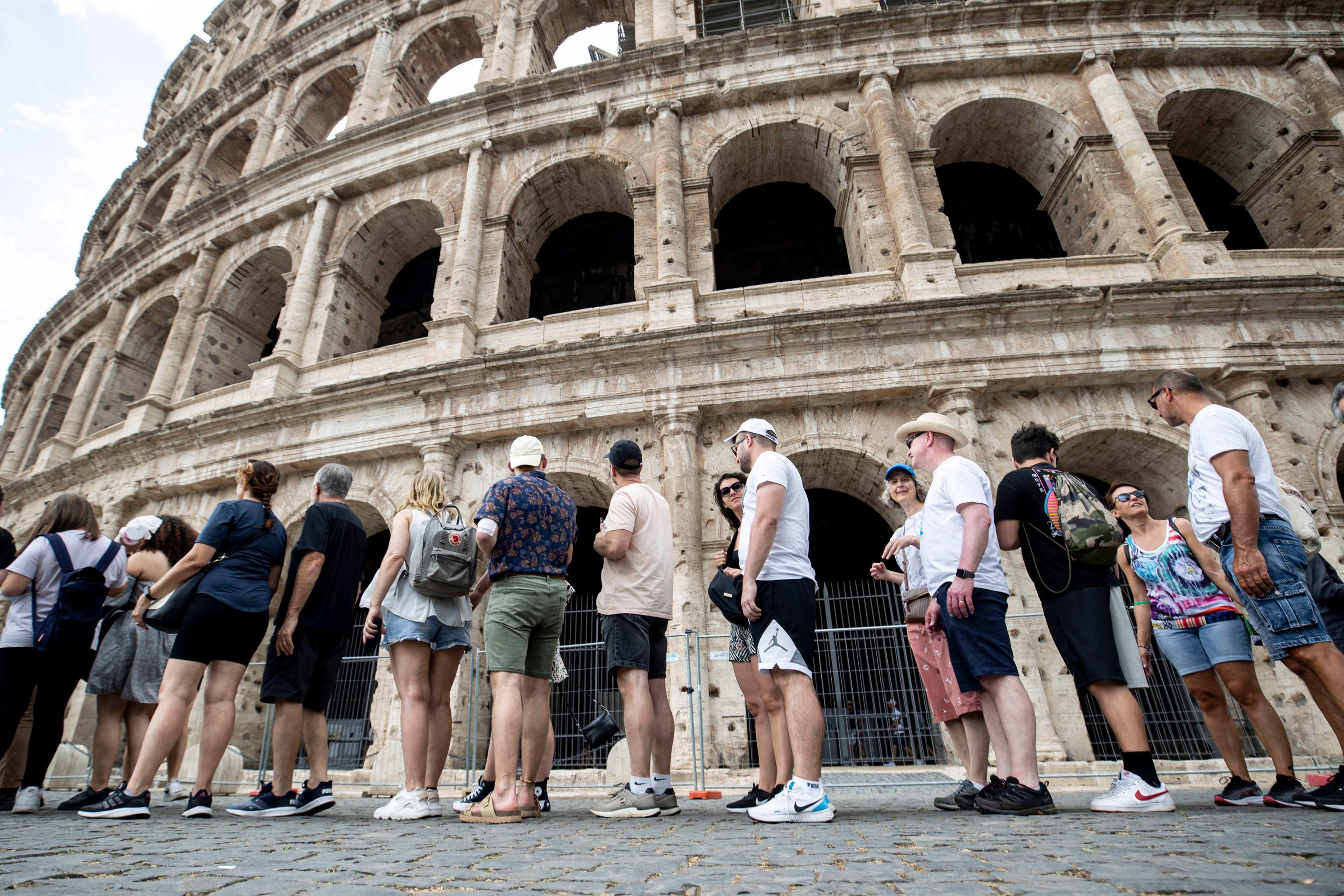The trouble with tourists: Italy braces itself for more unruly visitors following Spanish Steps damage
The incident on the Spanish Steps is the latest episode of damage caused by visitors against icons of Italy’s rich cultural heritage, reports Sofia Barbarani

Not many electric scooter rides have made such international headlines. Then again, not many electric scooter rides take place on an 18th-century globally-recognised landmark.
An American tourist in Rome has been banned from the city’s iconic Spanish Steps for life after she and a friend caused £20,000 worth of damage by reportedly hurling an electric scooter down them. The incident was caught on camera by a passerby.
But, sadly, the incident might not be isolated.
As Italy readies itself for a summer of tourism, the first full tourist season since the pandemic, many are wary that there may well be more incidents of vandalism and destruction against the country’s cultural heritage by reckless visitors.
More than 92 million foreign tourists are expected to make their way to Italy in 2022, according to market and public opinion research firm Demoskopika, a 35 percent increase from last year.
The latest incident on the Spanish Steps came just weeks after a Saudi businessman drove a rented Maserati down the same Baroque stairs.

These are just two in a long list of incidents that have caused outrage among Italians over the years and led to an act being passed in 2016 that introduced a maximum penalty of five years in prison for defacing or damaging cultural heritage and landscapes.
In 2020, MPs pushed to toughen penalties further while mayors from north to south continue to plead with the government to implement harsher measures.
Tired of visitors urinating and swimming in the city canals, Venice launched the hashtag #EnjoyRespectVenezia in 2017. As with most hashtags the initiative yielded no results and three years later Mayor Luigi Brugnaro took to threatening ill-mannered visitors with prison time.
Unruly tourists will end up “in a cell from one to 10 days; if you want to get out, you pay,” Brugnaro told local media. “I ask the justice of the peace for criminal powers, that’s all I can do – we have seven cells ready.”
But Brugnaro could be fighting a losing battle – just last month another two American tourists were caught on CCTV swimming naked in the canal of a residential area.
In 2018, then Rome mayor Virginia Raggi disclosed a new set of rules aimed at curbing unruly behaviour among tourists, including a ban on street drinking and eating near or climbing on fountains.
In the north of the country, the mayor of Pragelato, in the popular skiing site of Vialattea, called for fines to be implemented for tourists seen dropping rubbish and facemasks on the ground.
But skinny dipping and littering haven’t provoked the ire of Italians in the same way that theft and damage to historical sites and art has.
In 2020 an Austrian tourist unintentionally broke off two toes from the 19th-century semi-nude sculpture of Napoleon’s sister Pauline Borghese by Antonio Canova when he took a seat next to her for a photograph.
“Barbaric,” fired back Vittorio Sgarbi, the president of the Canova foundation of Possagno. “A disregarding Austrian tourist sat on Paolina Borghese, breaking her toes”.
In 2019, a Romanian and Israeli tourist were charged on two separate occasions for carving their initials into the walls of Rome’s Colosseum, while others have been caught red-handed as they attempted to steal pieces of the ancient building.
One British tourist who flew home with a cobblestone in his suitcase was riddled with guilt and mailed the centuries-old stone to a popular bar in Rome’s city centre, requesting that the staff put it back in its place.
Objects such as the typically Italian cobblestones have made it as far from Italy as the Kurdistan region of Iraq, where one restaurant owner once stored his stolen souvenir.

Italian media has always been awash with opinion pieces and editorials on rude tourists and locals enjoy going out of their way to point out visitors’ faux pas. But in reality Italy could not survive without its tourists and this summer it hopes to welcome as many as possible in a bid to emerge from the two-year slump it suffered.
As recently as December 2021 the country’s largest enterprise representative Confcommercio association called on the government for more financial support for the tourism sector.
The Italian economy, said the head of the organisation, Carlo Sangalli, cannot function without the tourist sector.
Join our commenting forum
Join thought-provoking conversations, follow other Independent readers and see their replies
Comments
Bookmark popover
Removed from bookmarks